Ukrainian President: Enormous IMF Loan Won’t Help Ordinary Ukrainians
Petro Poroshenko admits that a $17.5 billion International Monetary Fund loan and its associated austerity measures won’t improve the lives of ordinary Ukrainians -- but will help pay foreign creditors and fund the country's ongoing civil war.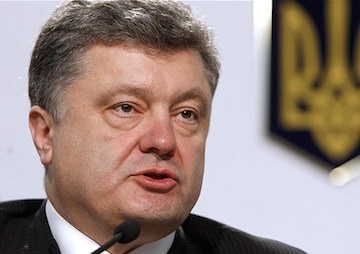 Ukrainian President Petro Poroshenko. (dayblakelydonaldson / CC BY 2.0)
Ukrainian President Petro Poroshenko. (dayblakelydonaldson / CC BY 2.0)
Ukrainian President Petro Poroshenko has admitted that a new $17.5 billion loan from the International Monetary Fund and its associated austerity measures will not improve the lives of ordinary Ukrainians — but will help pay foreign creditors and fund the country’s ongoing civil war.
“Life won’t improve shortly,” Poroshenko said in televised comments on March 10, one day before the IMF approved the loan. “If someone understands the reforms as improvement of people’s living, this is a mistake.”
One reason for the cooled expectations is what he called the “tough wartime conditions.” He also announced a fourfold increase in defense spending, a boost that according to Business New Europe, “will inevitably impact already limited means for social welfare and pensions.”
BNE continued:
Those tough wartime conditions seem to secure — for now — the population’s support for the defence spending hike to $3.8bn, or 5.2% of GDP. People are anxious about pro-Russian rebels in eastern Ukraine pushing westward in the fierce fighting of recent weeks, and fearful that they could take more ground if February’s shaky ceasefire collapses. “In the current situation, [more defence spending] is a good thing,” said 33-year-old Kyiv businessman Vitaliy Zanadvorov.
The reforms demanded by the IMF include the raising of gas prices to levels that prevail in the European Union — a 280 percent increase by 2017, according to an estimate cited by BNE. Valentina Podenko, 77, a pensioner, remarked at the number: “I didn’t know they will increase, especially that much. I’ll just have to stop eating, I guess.”
Press reports over the past several months have described the country’s economy as being in a shambles. In March, Poroshenko said, “Around 25 percent of the country’s industrial potential has stopped,” while “around 10 percent has been physically destroyed.”
BNE added that inflation officially hit 34.5 percent in February and is set to go higher. With foreign creditors expecting repayment of some $5.4 billion in loans this year and with just $5.6 billion held by the country’s central bank in early March, Ukrainians themselves will effectively receive none of the first $5 billion tranche from the IMF.
The pensioner Podenko told BNE that financial support from her children is what keeps her going. “My pension is UAH1,300 [around $60], how am I supposed to live on this with this kind of inflation? After I pay my bills and buy all the necessary medicines, I’m left with UAH400 and how will that last me a month?”
The central bank responded to hyperinflation in early March by hiking interest rates from 19.5 percent to 30 percent, making it more costly for borrowers to get the money that they need to finance opportunities to generate income.
Well aware of the corruption that runs through their network of officials and society-at-large, many Ukrainians fully expect much of the IMF money to disappear into the pockets of officials.
BNE reported:
Memories are fresh of the institutionalized kleptocracy that thrived under ousted president Viktor Yanukovych and a succession of leaders and governments before him, whether pro-Russian or pro-EU. Many people think the new authorities are as bad across the board, despite some visible efforts under the gaze of foreign lenders to combat corruption. And by some recent indications, they still are. In January, presidential advisor Yuriy Biriukov claimed that 20-25% of funds allocated to the Defence Ministry were still going astray, adding that “total corruption” exists in the ministry itself. In conditions of quadrupled defence spending, the opportunities for graft will only rise.
Zanadvorov, the businessman quoted above, sees the financial pain that Ukrainians are suffering as the necessary cost of admission to European civilization. “It had to come sooner or later,” BNE quoted him as saying. “Just as everybody in any EU country saves, we have to do the same. It’s a normal path for every civilized nation.”
Yelena Paznya, who works as a housewife in the country’s agricultural western region, sees things slightly differently. “The prices [for energy] would be fair if we had European salaries,” she said. Still, she supports the leadership, including their decision to spend billions on continued fighting in the eastern part of Ukraine. “We are at war now, and I’m willing to save and suffer even more just to stop this madness.”
— Posted by Alexander Reed Kelly.
Your support matters…Independent journalism is under threat and overshadowed by heavily funded mainstream media.
You can help level the playing field. Become a member.
Your tax-deductible contribution keeps us digging beneath the headlines to give you thought-provoking, investigative reporting and analysis that unearths what's really happening- without compromise.
Give today to support our courageous, independent journalists.
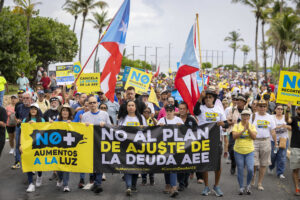


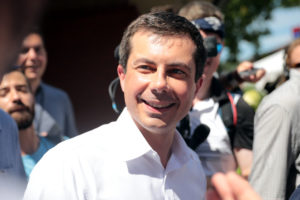
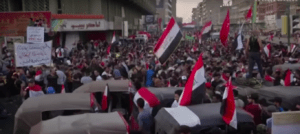
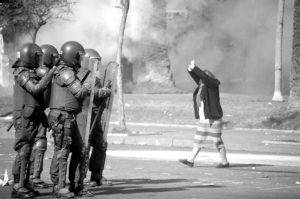
You need to be a supporter to comment.
There are currently no responses to this article.
Be the first to respond.